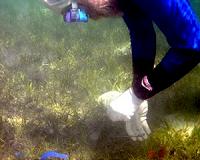 |
Baghdad (UPI) May 13, 2011 Iraq's Oil Ministry has embarked on a $50 billion upgrading of its oil and gas export pipeline network, a vital element in Baghdad's plans to boost oil production to 11 million-12 million barrels per from the current 2.3 million bpd. Without the wholesale modernization of Iraq's dilapidated energy infrastructure, battered by decades of war, international sanctions and neglect, boosting production and exports cannot be achieved. All of this urgently needed development hinges on the coalition government of Prime Minister Nouri al-Maliki being able to ensure security -- and, amid a recent surge of terrorism and sectarian bloodshed, that's far from certain. But Baghdad is pressing ahead with plans that include laying a new network of pipelines through neighboring Turkey and Syria to push exports up. In September 2010, Baghdad signed an agreement with Turkey to extend the operation of the 600-mile twin pipelines that carry 450,000 barrels of oil a day from the Kirkuk oilfields in northern Iraq to Turkey's loading terminal at Ceyhan on the eastern Mediterranean. The pipelines have a total capacity of 1.65 million barrels a day but, because of sabotage by insurgents and technical difficulties, they have rarely moved anywhere near that much oil for many years. Meantime, Iraq and Syria, not always the best of neighbors, have disclosed plans to build as many as three new cross-border pipelines, two for oil and one for gas. These would also start from Kirkuk and run to Syria's Mediterranean port of Banias. The planned outlets would have a capacity of 2.5 million barrels of oil a day, 52 percent more crude than runs through the existing Kirkuk-Ceyhan pipeline. Together they would provide the infrastructure for a major boost to Iraq's export potential to markets in Europe and the United States. Baghdad also aims to build an oil pipeline to neighboring Jordan, which has no energy resources of its own and long depended on Iraqi oil. It isn't clear what the capacity would be. At present, Iraq trucks 10,000 bpd across the desert to the Hashemite kingdom's refinery at the industrial city of Zarqa, north of Amman, but it would be far greater than the current intake from Iraq. According to the Middle East Economic Digest, Iraq expects to sign contracts on the engineering consultancy phase by early May at the latest. Build-operate-transfer contracts should be tendered in 2012. All told, the plan is to add some 4,375 miles of pipeline across the country. The first phase includes a 400-mile oil pipeline with a capacity of 1.75 million bpd from Basra, the major oil center in southern Iraq, where two-thirds of the country's known reserves are located, to Haditha in Anbar province in the northwest. From there, one line would run on westward to Syria and the other merge with the northern export pipeline to Turkey. Another key project is rehabilitating the badly corroded 30-inch-diameter Kirkuk-Ceyhan pipelines and repairing the damaged IT-2 pumping station south of the northern city of Mosul. Throughput on the line has been effectively halved since the U.S.-led invasion of Iraq in March 2003. MEED, published in the United Arab Emirates, reported that Baghdad was considering laying a gas export pipeline from Basra to North Baghdad, which could be later extended to Turkey or Syria. This could possibly link to the proposed 2,100-mile Nabucco gas pipeline to run from Erzurum in Turkey to Austria with a planned annual capacity of 1.1 trillion cubic feet of gas from the Caspian Basin. It's still not certain this project, started in 2002 and backed by the European Union and the United States, will get off the ground. This is largely because of doubts concerning the viability of supplies, which would mainly be provided by Azerbaijan. Phase two of the Iraq master plan envisages an oil pipeline from Basra to North Baghdad, then running on to the Syrian port of Tartous in the eastern Mediterranean. The pipeline would have a capacity of 1.5 million bpd and the project would entail the construction of at least five new oil depots. Rehabilitating the Khor al-Zubair oil terminal near Basra, which handles southbound exports through the Persian Gulf, will be essential to accommodate increased production expected from the giant southern fields now being developed by international oil companies.
Share This Article With Planet Earth
Related Links Powering The World in the 21st Century at Energy-Daily.com
 Deepwater Horizon Spill Threatens More Species Than Legally Protected
Deepwater Horizon Spill Threatens More Species Than Legally ProtectedDurham NH (SPX) May 13, 2011 Marine species facing threats from the 2010 BP Deepwater Horizon oil spill in the Gulf of Mexico far exceed those under legal protection in the United States, a new paper in the journal BioScience finds. University of New Hampshire professor Fred Short and others found 39 additional marine species beyond the 14 protected by federal law that are at an elevated risk of extinction. These spec ... read more |
|
| The content herein, unless otherwise known to be public domain, are Copyright 1995-2010 - SpaceDaily. AFP and UPI Wire Stories are copyright Agence France-Presse and United Press International. ESA Portal Reports are copyright European Space Agency. All NASA sourced material is public domain. Additional copyrights may apply in whole or part to other bona fide parties. Advertising does not imply endorsement,agreement or approval of any opinions, statements or information provided by SpaceDaily on any Web page published or hosted by SpaceDaily. Privacy Statement |